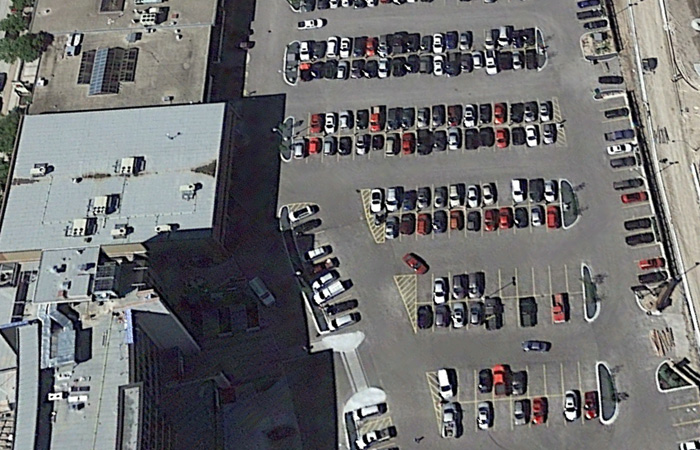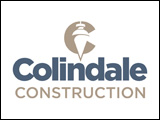The question of downtown parking in Steinbach has come up again, as it does periodically. The focus of the discussion is, how many free parking spaces are needed. An assumption basic to this discussion is that we all should be able to park freely and conveniently close to our destination at any time. In this article I want to challenge the validity of this assumption.
Why do we assume that parking should be free for us when, in fact, there is no such thing as free parking. It’s a cultural expectation! The land devoted to parking has value, and someone paid for it. The parking area needed to be developed, and the area needs to be maintained. I don’t have figures for Steinbach, but the City of Toronto considers the capital cost of one surface parking space to be $15,000, and the annual cost of maintaining that space to be $1,400. Of course land is cheaper in Steinbach, so the capital cost will be lower, but I see no reason why the maintenance cost would be lower in Steinbach. There is no free parking, and the owner of the car occupying the parking space does not pay for it. So the taxpayer pays or the customer of the business maintaining the parking pays. “Free” parking is, in fact, a subsidy to car owners and an incentive to folks to use their car. Is this really what we want?
Donald Shoup, in his book “The High Cost of Free Parking” contends that many of the woes associated with our car culture can be linked directly to the lack of rational attention to parking. More specifically, he argues that the oversupply of free parking (he estimates 99 percent of parking in the U.S. is free) is an enormous public subsidy that makes driving less expensive than it should be, further skewing travel choices. In fact, transportation suffers from the “tragedy of the commons” relative to parking. (The tragedy of the commons applies to all free and un-owned resources and is most acutely observed with regard to fisheries. Zoning requirements for overly-abundant off-street parking and failure to charge appropriately for curb parking result in extra air pollution, higher oil consumption, traffic congestion, and sprawl. Less obviously, parking requirements increase the cost of housing, as well as goods and services. For urban areas, Shoup summarizes these effects quoting Mumford: “The right to have access to every building in the city by private motorcar in an age when everyone possesses such a vehicle, is actually the right to destroy the city.”
In my opinion Steinbach City Council has shown significant, good leadership in persuading the Credit Union to remain downtown and to plan for the megaplex to be downtown. But having these two significant undertakings downtown now raises the parking question. We are now seeing space previously devoted to housing or business now being turned into paved parking. There is even talk of a parking garage. Is this what we really want? Is this necessary? Can we turn the question from “How can we ensure enough parking?” to “How can we restrict cars from our commercial area without restricting people?”
What effect would it have on our city if we had metered parking throughout the commercial areas? On street (city owned) parking would be metered, and businesses would be required to charge for parking as well. With the technology available today, this is easily done. The immediate effect would be that all of us would think twice before we would take our car to the commercial area, whether because we work there, or we shop there. We would be more apt to walk, or take the bicycle. That in itself has its benefits. But it would also reduce the demand for parking in the commercial areas. The city as a whole would devote less space to parking. As the city would adjust to this new reality, gradually the pavement would give way to more exciting things like actual businesses providing serves and goods, as well as more green space. Surely it would become more the kind of city we all want.




